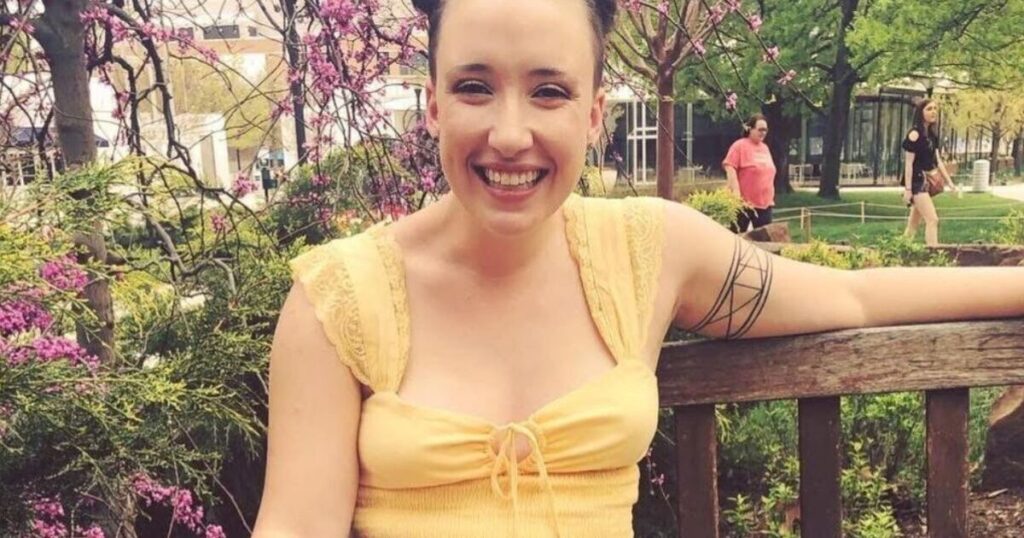
A 26-year-old graphic designer has defied the odds by buying her first home without any savings or financial support from her parents.
Madison Hill secured a three-bedroom house in Tulsa, Oklahoma, on a $45,000 (around £33,000) salary, using clever government-backed loans and assistance programmes to get on the property ladder in one of the toughest markets in recent years. Now 30, Ms Hill recalls the summer of 2021 when she purchased her £78,000 ($105,000) home. She said: “I bought my house completely on my own at 26 with no savings and no help from any person in my life. I was making $45k a year, I barely had any savings for a home and didn’t have to empty my account to buy the house.”
Ms Hill first saw the property listed for $95,000, but with fierce competition from cash buyers, she decided to offer $10,000 above the asking price. She explained: “The market was really hot back in 2021. The realtor said it was between me and another person.”
With no savings to put towards a deposit, Ms Hill turned to a Federal Housing Administration (FHA) loan, designed to help buyers with low to moderate incomes. This allowed her to put down just 3.5%, which worked out to around $3,500.
However, because she had a master’s in city planning, Ms Hill was aware of even more programmes to help her get onto the ladder. She applied for a down payment assistance programme, which covered the entire deposit required by the FHA loan.
She said: “Down payment assistance programmes are targeting low to medium-income people who are first-time home buyers. The one I have on my home, the terms are I don’t have to repay them as long as I am living here. If I were to sell or refinance my home, I would have to repay them.”
The final hurdle was the $6,500 in closing costs, which cover legal fees, surveys, and other expenses. Ms Hill paid these by withdrawing funds from her 401k, a US retirement savings plan.
She said: “The purchase of your primary residence is an allowable reason for early withdrawal from your 401k.”
Now, Ms Hill pays around $900 a month for her mortgage, insurance, and property taxes, which is less than many pay in rent.
What schemes are available for prospective buyers in the UK?
There is a range of different schemes available for prospective buyers in the UK, and here’s a rundown of a few.
First Homes Scheme
This scheme offers first-time buyers in England the chance to purchase a new-build home at 30% to 50% below market value. Buyers must be at least 18, purchasing their only or main residence, and not earn more than £80,000 (£90,000 in London).
However, local authorities may set additional eligibility criteria, such as prioritising key workers or local residents.
Shared Ownership
The Shared Ownership scheme allows buyers to purchase a share (typically 25% to 75%) of a property and pay rent on the remaining portion.. Buyers can increase their ownership over time through “staircasing.” This option can be particularly helpful for those unable to afford a full deposit or mortgage; however, it’s vital to grasp the terms before signing up.
Lifetime ISA (LISA)
The Government’s Lifetime Individual Savings Account (ISA) is available to those aged 18-39. It allows people to save up to £4,000 per year, after which a 25% Government bonus is added on top (up to £1,000 annually). Funds can be used towards a first home (currently worth up to £450,000) or for retirement.
Rent to Buy and Right to Buy
The Rent to Buy scheme enables tenants to rent a property at a reduced rate while saving for a deposit, with the option to buy after a set period.
Meanwhile, the Right to Buy scheme allows eligible council and some housing association tenants in England to purchase their homes at a discount.
Low deposit mortgages
Several lenders in the UK now offer low deposit mortgages, allowing buyers to purchase with as little as 1% or 5% down, and some even provide 100% mortgages for those with strong credit and stable incomes.
However, these typically come with higher interest rates and stricter affordability checks, meaning monthly payments can be much more expensive. Borrowers should carefully consider the long-term financial commitment and risks, especially if property values fall.
Other regional and specialist schemes
Other various regional initiatives and targeted programmes exist, such as the Deposit Unlock scheme, which have specific eligibility and benefits.
 Latest World Breaking News Online News Portal
Latest World Breaking News Online News Portal






